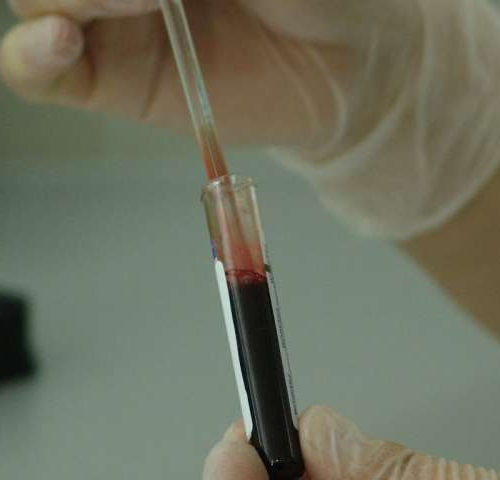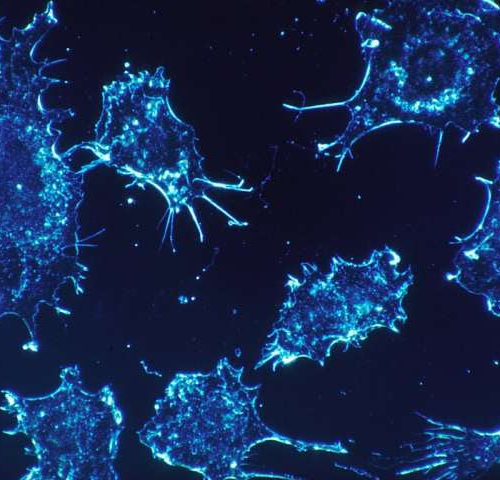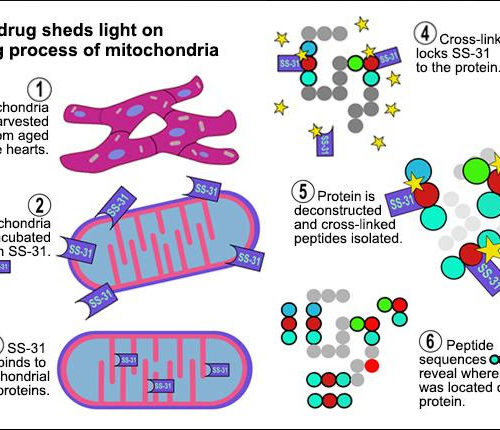by Johannes Angerer, Medical University of Vienna CAR-T cell therapy is a new and revolutionary weapon against cancer: T cells are isolated from the patient’s blood for genetic modification and then infused back into the patient to attack cancer cells. Researchers from the Medical University of Vienna have now determined why CAR-T cells do not...
Tag: <span>Lymphoma</span>
A metabolic enzyme drives lymphoma and is a potential drug target
by Memorial Sloan Kettering Cancer Center Because of how aggressively they divide, cancer cells have an increased demand for building materials and energy. They meet these added demands by altering their metabolism—taking in larger amounts of fuel, for example. Historically, these metabolic changes have been considered a consequence rather than a cause of cancer, and...
What causes finger joint pain?
Finger joint pain may affect a person’s everyday activities and may have several different causes. Some people may experience finger joint pain that worsens when they move or press on the finger. Others may have persistent finger joint pain that does not improve with rest or over-the-counter (OTC) treatment. This article discusses the causes, symptoms,...
CAR T cell therapy: potential for considerable savings
GERMAN CANCER RESEARCH CENTER (DEUTSCHES KREBSFORSCHUNGSZENTRUM, DKFZ) Chimeric antigen receptor (CAR) T cell therapy is a new and in some cases highly effective form of immunotherapy to treat certain types of cancer of the blood and lymph system. This promising treatment comes at a cost, however: The manufacturers charge up to EUR 320,000 for the...
Early clinical trial supports tumor cell-based vaccine for mantle cell lymphoma
by Rockefeller University Press A phase I/II clinical trial by researchers at Stanford University suggests that vaccines prepared from a patient’s own tumor cells may prevent the incurable blood cancer mantle cell lymphoma (MCL) from returning after treatment. The study, which will be published June 19 in the Journal of Experimental Medicine (JEM), reveals that...
Researchers test new treatment protocol for lymphoma
Lymphoma is a type of blood cancer that develops from lymphocytes (a type of white blood cell). It has many subtypes. A rare subtype, called intravascular large B-cell lymphoma (or IVLBCL) is notably hard to diagnose accurately because the cancerous lymphocytes grow inside small blood vessels, instead of at lymph nodes, and there is no...
Old weapon, new target: Dasatinib against angioimmunoblastic T-cell lymphoma
Researchers from the University of Tsukuba show that angioimmunoblastic T-cell lymphoma (AITL) is dependent on T-cell receptor (TCR) signaling and that dasatinib, a multi-kinase inhibitor that targets the TCR pathway, may improve treatment outcomes UNIVERSITY OF TSUKUBA Tsukuba, Japan – Angioimmunoblastic T-cell Lymphoma (AITL) is an intractable form of non-Hodgkin lymphoma with a bleak prognosis....
Lymphoma patients may have new path to remission, even when CAR T therapy fails
Penn study shows promise of an off-the-shelf immunotherapy in relapse/refractory non-Hodgkin lymphoma UNIVERSITY OF PENNSYLVANIA SCHOOL OF MEDICINE ORLANDO – A new, experimental immunotherapy can put patients with B-cell non-Hodgkin lymphoma (NHL) that is resistant to or has come back after multiple other therapies, including CAR T therapy, into remission. A global, multi-center trial found...
Leukemia, lymphoma squarely in sights of new class of drugs
UNIVERSITY OF TEXAS HEALTH SCIENCE CENTER AT SAN ANTONIO UT Health San Antonio researchers, working with collaborators at the University of Florida, have discovered a safe and potent next generation of drugs to fight multiple types of leukemia and lymphoma in adults and children. The journal Nature Medicine reported the findings Dec. 2. “This is...
Accurate lymphoma prognosis from a simple blood test
by Kristin Samuelson, Northwestern University After a patient is diagnosed with lymphoma—an often-treatable type of cancer that attacks the lymph nodes, spleen, thymus, bone marrow and more—the natural next steps are determining the patient’s survival outlook and deciding the best course of treatment. But current methods of doing so remain inaccurate or invasive, often involving...




